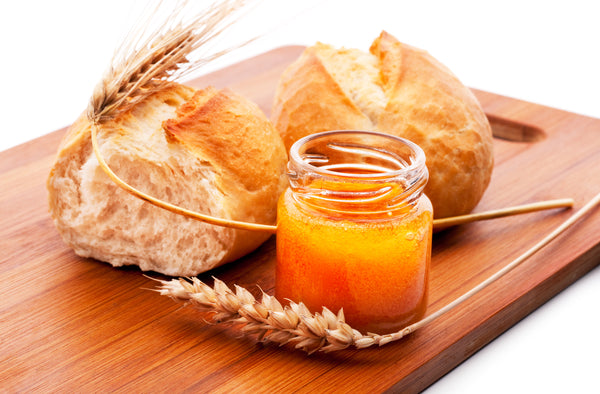- No products in the cart.
Honey has long been recognised as having unique properties that can assist with wellbeing and getting the most out of life - some more so than others (we're looking at you mānuka) - and is widely used as a natural remedy by cultures around the world. While researchers seek ways to uncover and further understand the various qualities of honey including its antioxidant and antimicrobial properties, consumers continue to enjoy the benefits every day.
Honey provides a mix of minerals including calcium, magnesium and phosphorus, as well as enzymes and trace elements of iron, zinc and selenium. Honey also tastes sweeter than regular sugar; with one teaspoon of honey having the same sweetness as two teaspoons of sugar, it’s a perfect substitute in drinks and cooking.

Mānuka honey is often cited in discussions on the health benefits of honey, with users claiming it assists with a range of problems. As a natural food, UMF® mānuka honey is a great alternative to refined sugar and an excellent way to enjoy your sweet fix.
Honey can also be a great benefit for sports or physical activities. The glucose in honey is absorbed quickly to provide immediate energy, while the fructose is absorbed over time to offer sustained energy delivery. In fact, honey has been proven to sustain blood sugar levels for longer periods than refined sugar, sports gels and carbohydrate snacks, meaning it’s equally beneficial to athletes, recreational sports players and anyone wanting to avoid the ‘crash’ of sugar products.

Why mānuka honey
Genuine New Zealand UMF® mānuka honey’s wellbeing properties make it a sought-after product. We’ve come up with a way to ensure ours is not only certified authentic so you can trust its quality; we’ve also given it a signature smoothness and rich flavour that’s second to none. Read on to see why we call it the good taste of goodness.

What makes mānuka honey so special?
For one thing, mānuka honey is rarer because collecting it is not as simple as other types of honey. It’s impossible to make bees go only to a specific plant, but they will take what’s closest, so hives have to be located in areas densely populated by mānuka trees to ensure that’s all they’re collecting. On top of that, mānuka trees only flower for a few weeks every year (2-6 weeks approx) so there’s a limited time for it to be made. And the amount of honey made each year can also be influenced by weather conditions and how much nectar the flowers produce.
Methylglyoxal
Also known more simply as MGO, this is what gives mānuka honey its unique antibacterial properties. The level of MGO in mānuka honey is how it gets its UMF™ grade.
Leptosperin
Also found in mānuka nectar, leptosperin is a signature compound that helps differentiate mānuka from other honey types.
Dihydroxyacetone (DHA)
This is what MGO is before it’s collected by the bees. DHA is found in the mānuka flower nectar and is converted to MGO when it is turned into honey.
